The verdict: The 2017 BMW 5 Series is comfortable, quick and loaded with tech, but its "Ultimate Driving Machine" moniker is no longer appropriate.
Versus the competition: The focus on comfort and accessibility has dulled the 5 Series into average status among luxury sedans; it’s no longer focused on enthusiast buyers but will likely be more appealing to the general public.
It's sad when something isn't as good as you remember it to be. Like a familiar restaurant that no longer makes your favorite dish or a favorite musician who can't quite hit all their notes in concert anymore.
That's how I feel after spending a week with not one but two BMW 5 Series sedans, the 2017 BMW 540i and 530i xDrive. Make no mistake: These are fine automobiles, nicer inside than they've ever been and chock-full of amazing technology (some useful, some silly). They're powerful, efficient, quick and smooth. But they've most assuredly lost the mojo that used to make BMWs sing in the hands of enthusiast drivers. In a quest to chase sales, BMW has made its products increasingly appealing to a broader audience — and sales have responded. But while the brand's advertising is still chasing enthusiasts, some of the products themselves no longer reflect their tagline: "Ultimate Driving Machine."
Good Looks Remain
The new 5 Series has received a freshening, but it's starting to suffer from an affliction affecting most of BMW's lineup: a lack of fresh ideas. Lately, one generation of BMW products blends into previous generations. Is this a 2017? A 2015? A 2012? Can you really tell anymore? At least it's still attractive, with sleek LED headlights, thick haunches and aerodynamic styling, and there are still vestiges of characteristic BMW styling elements, like the twin-kidney grille and unique C-pillar design. But it looks more "now" than "new."
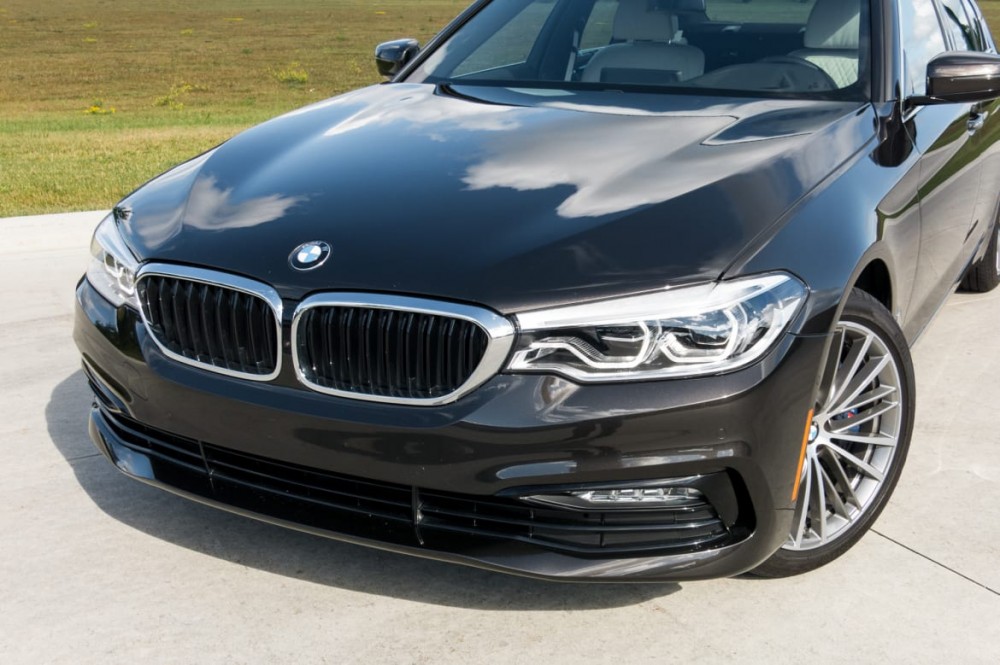
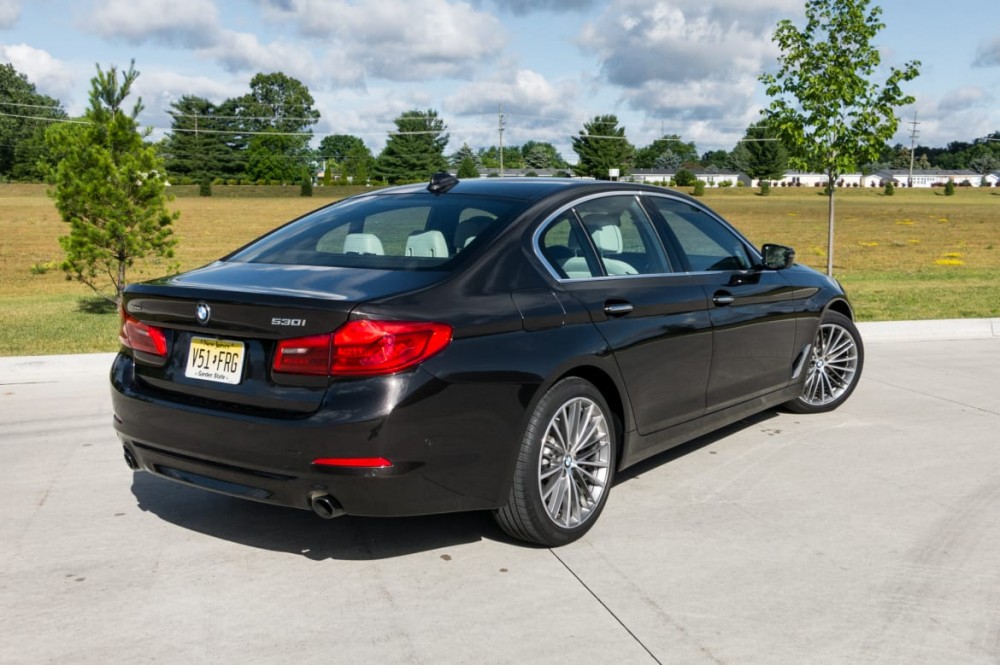
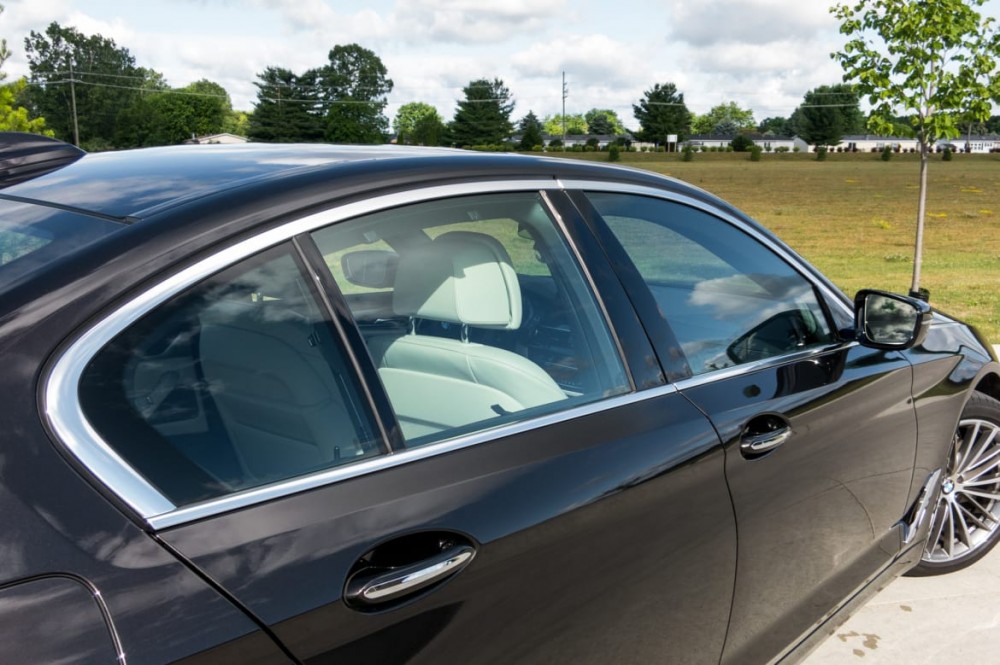
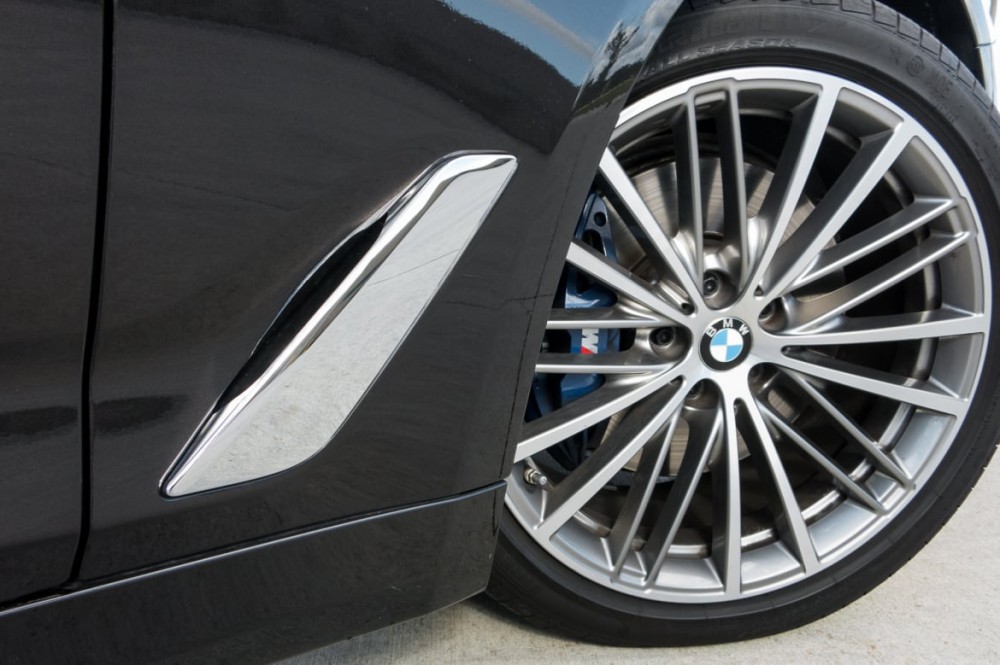
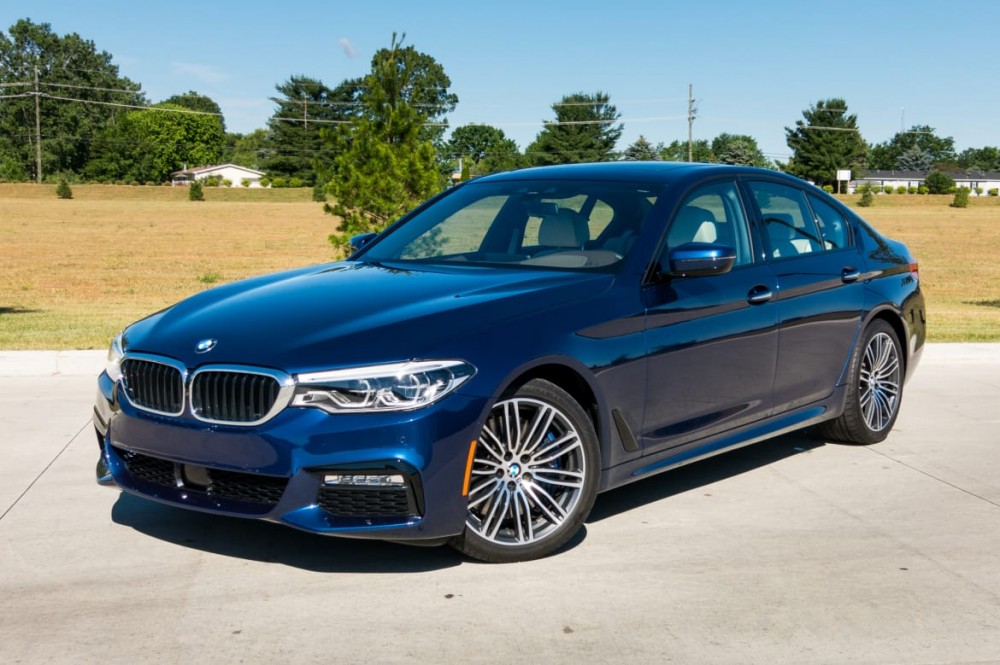
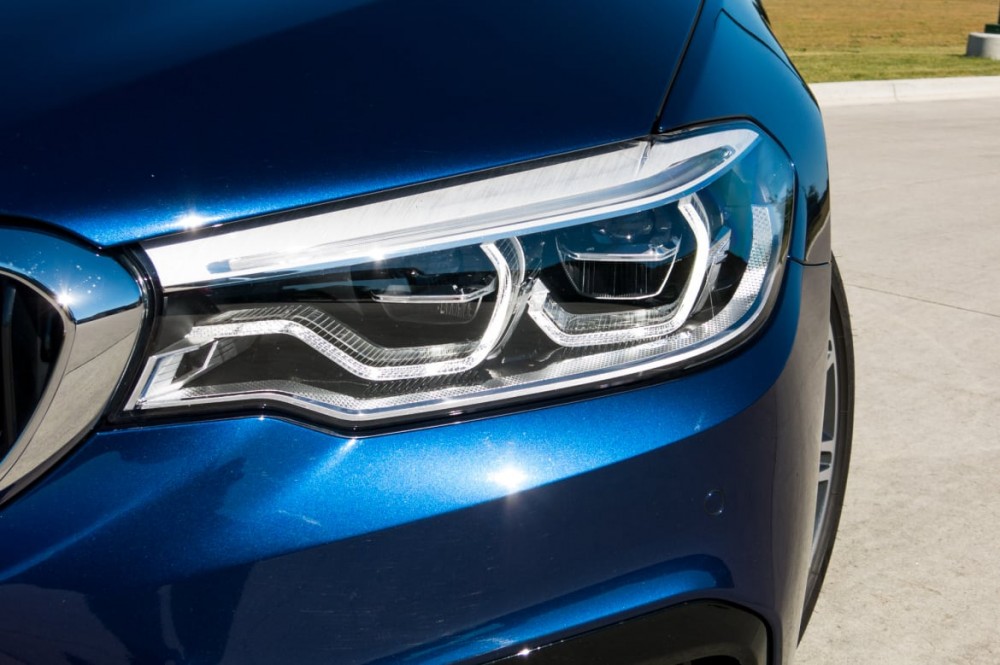
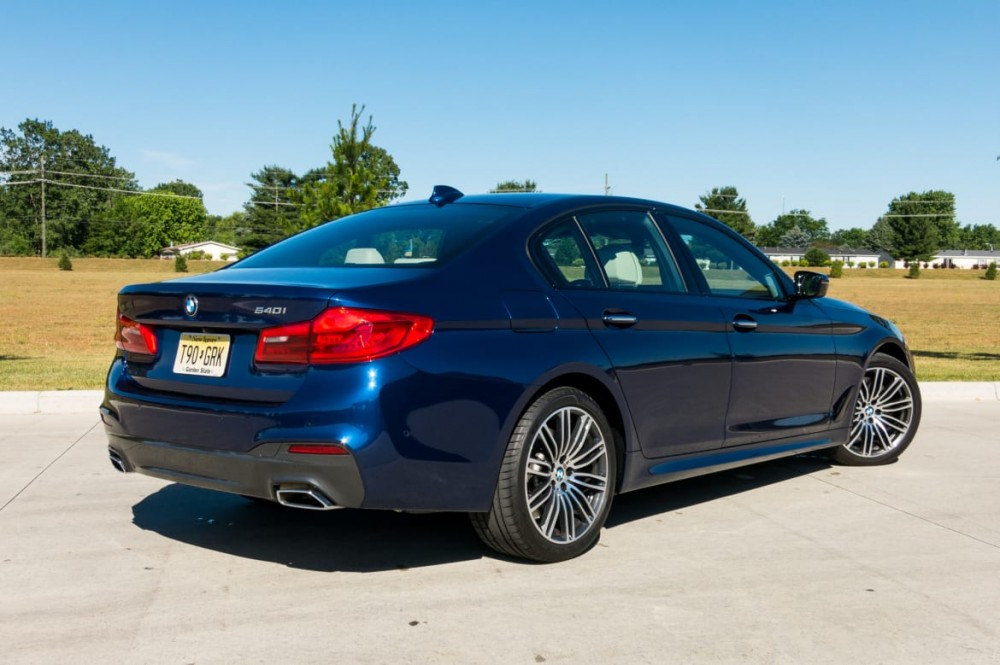
BMW's Nicest Interior Yet
Inside is where the upgrades are most noticeable. BMW has been rightfully stung lately by the astonishing luxury and quality of Mercedes-Benz interiors, even in its entry-level models, and has responded with aplomb. The 2017 5 Series' cockpit is considerably better than the outgoing model's, but its top trim level still falls just a hair short of the opulence of even a base Mercedes-Benz E-Class. It's close enough these days that choosing one over the other comes down to a preference in style — do you like the unusual shower-drain speaker grilles on the Mercedes? Or do you prefer the cleaner lines of the BMW? It's a win either way.
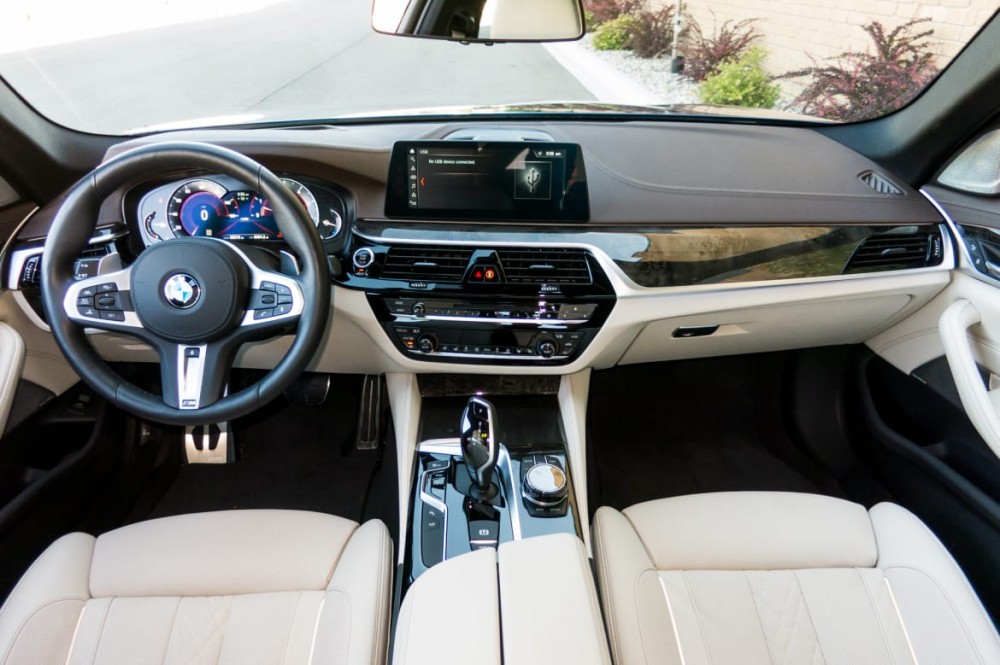
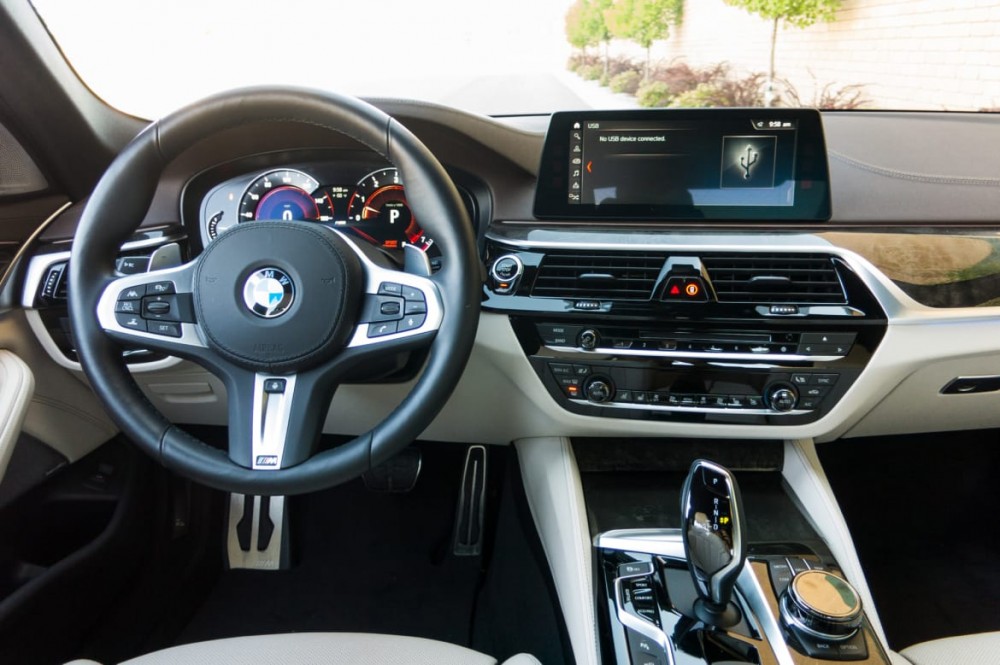
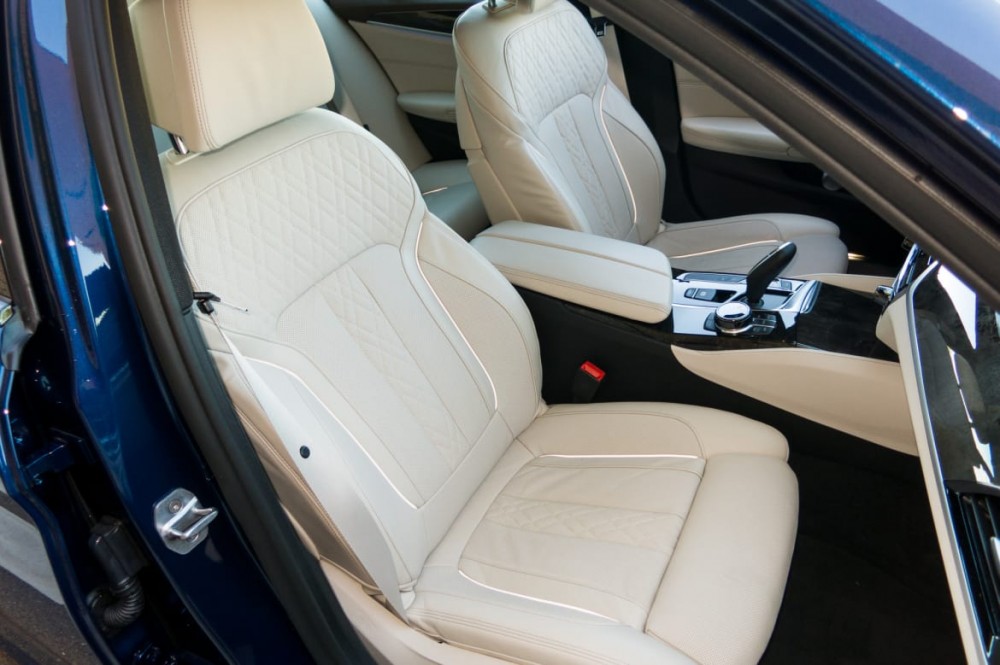
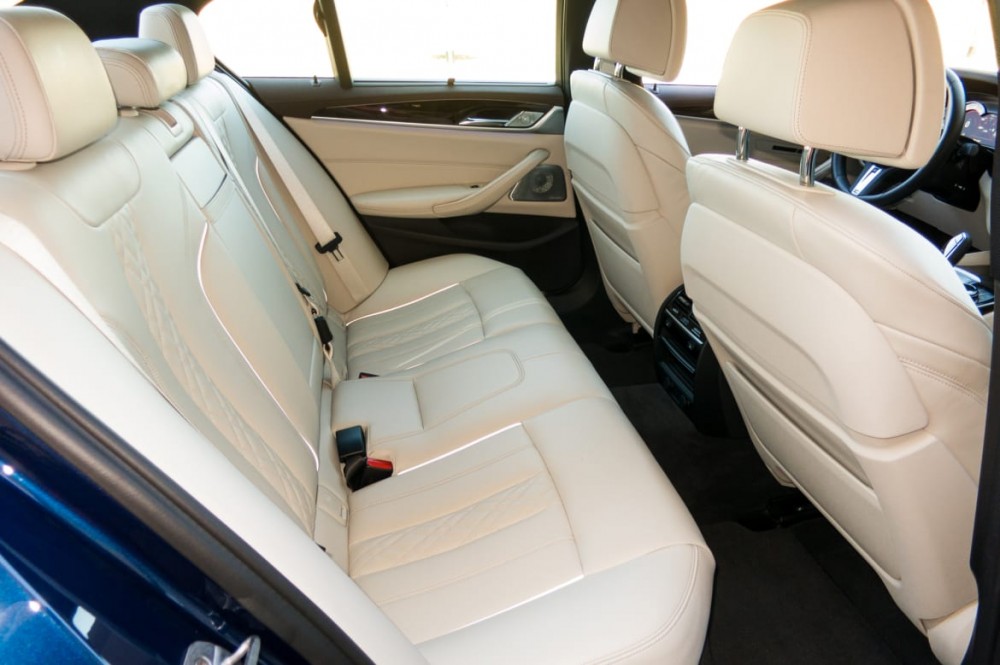
Space is not an issue, either, with plenty of room front and back. The front seats are very comfortable and highly adjustable, with available heating and ventilation. The backseat features acceptable legroom, with plenty of room for two people. Three will still find their legs cramped by the driveshaft tunnel in this rear-wheel-drive car, but the 5 Series' width makes three abreast more pleasant than it's been in recent years.
Outward visibility is also good, with a reasonably low beltline that adds airy spaciousness to the cabin. Contrast this with the Mercedes-Benz E-Class, which has a high beltline that makes you feel like you're sitting in a cocooning tub, and the BMW feels a little bigger inside.
Gadgets Galore
BMW has focused on some pretty impressive technology, some of which is genuinely useful, some of which comes across as gimmicky and silly. The 530i features standard navigation and a 10.2-inch display screen with the latest iDrive multimedia control system. It's come a long way from the initially difficult-to-use, multiple-menu system, and while it still buries some functions (like safety equipment activation) in these menus, it's a lot easier to use than in previous years. Apple CarPlay is available, but it's a $300 option.
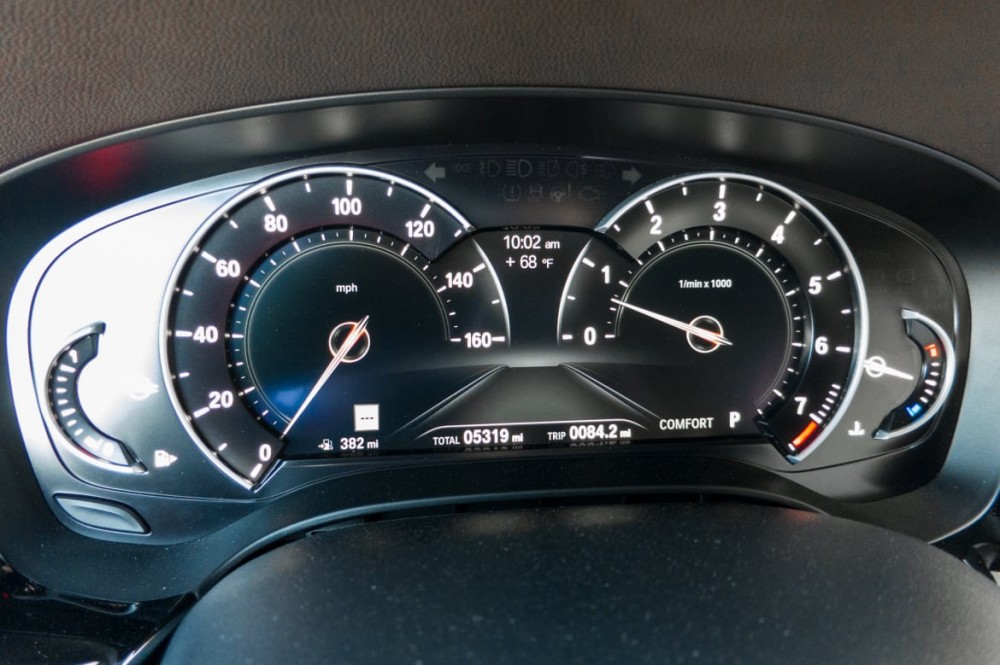
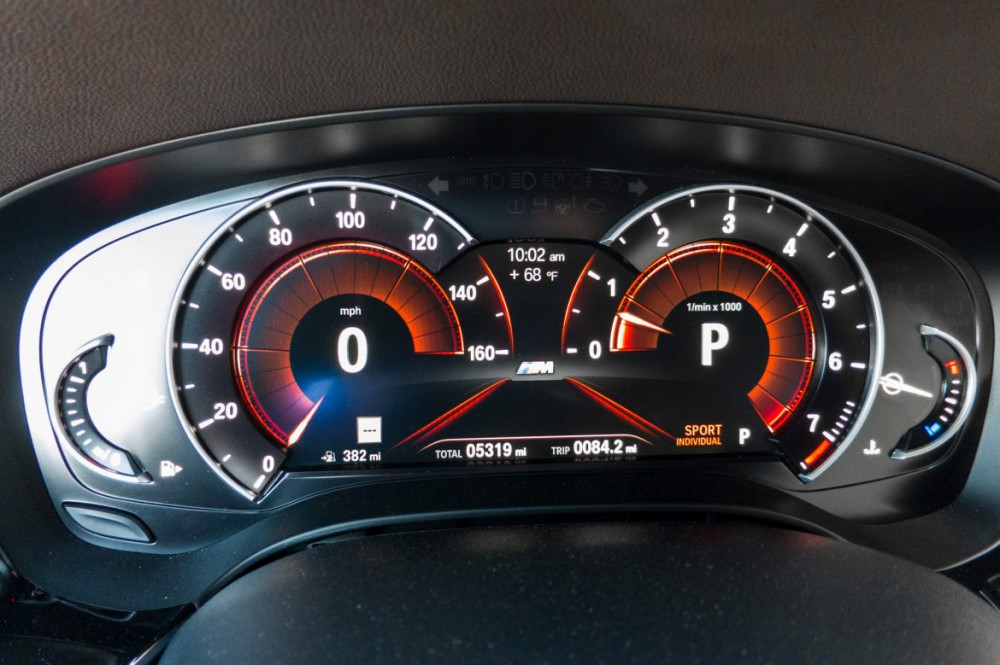
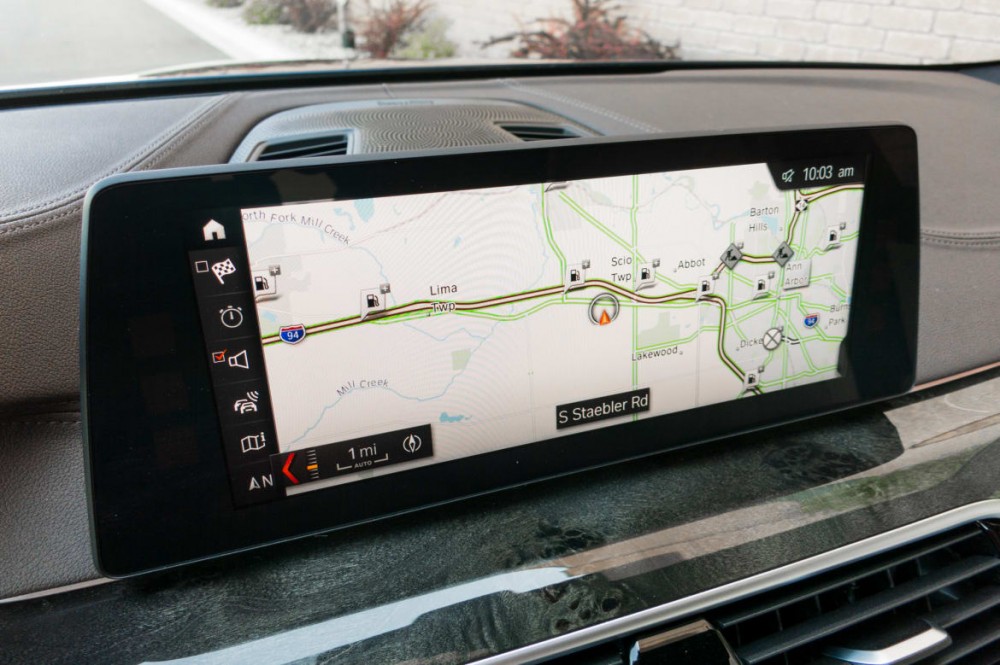
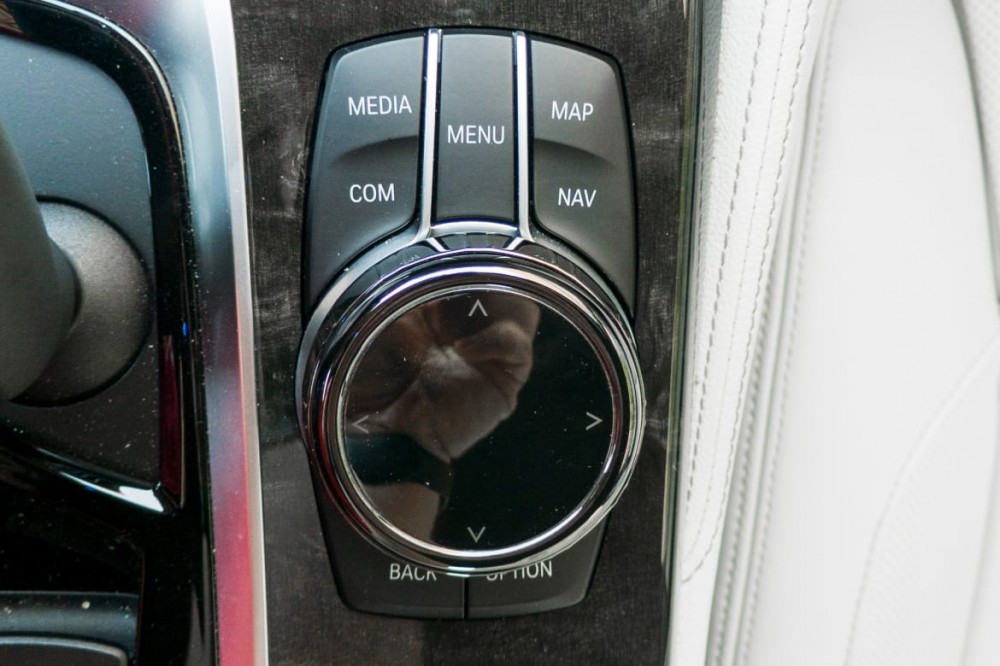
BMW offers a few new high-tech options, some astonishing, some not so helpful. On the genuinely useful side is the remote control parking function, which lets you stand outside the car and pull it into or out of a super-tight space that wouldn't allow you to open the doors if you drove it in. On the less useful side is the rather silly gesture control for the multimedia system. Read more about these functions here.
But the Thrill Is Gone
If you've never driven a BMW before, you'll fire up the 5 Series, take it for a spin and declare it to be an excellent luxury car. And let's be clear about this — it is. It's refined, it's smooth, it's quiet, it's extremely well-insulated from the noise and harshness of the outside environment. It's everything American buyers seek from a luxury brand like Lexus or Mercedes-Benz, and it's one of the reasons BMW has been able to keep up with those two brands in sales for the past several years.
The complaints you'll hear with the latest BMWs come from people who have been driving BMWs for 20 or 30 years: that they used to be enthusiast machines — vehicles made for people who love tight-handling, high-performing, European-flavored sports sedans and coupes. BMW's advertising tagline, the "Ultimate Driving Machine," has been around more than 40 years, and it once accurately described the brand's cars. Not anymore.
It's not a matter of powertrains. The base engine in the 530i is a turbocharged 2.0-liter four-cylinder making 248 horsepower and tied to a standard eight-speed automatic transmission. Step up to the 540i and you'll get a 335-hp, twin-turbocharged 3.0-liter inline-six-cylinder engine. Or you can go big and splurge for the M550i, which comes with a 456-hp, twin-turbo 4.4-liter V-8.
My testing was limited to the first two models, the 530i xDrive (with all-wheel drive) and the 540i in rear-wheel-drive form. The four- and six-cylinder engines are wonderful, with plenty of usable torque to drive the car quickly off the line. Put them in Sport mode and things get even quicker, with throttle response changes that make both cars much more responsive to pedal inputs. The eight-speed transmission is well-matched to either engine, snapping off quick shifts with smooth precision and very little hunting for the appropriate gear regardless of your driving style.
Both cars also ride extremely well, with excellent body control and well-damped motions that effectively isolate the driver without feeling too floaty. But here's where we start to see how far BMW has skewed from enthusiast drivers and into luxury territory. While the suspension is comfortable, it also does away with any communication to the driver about what the car is doing. The electric power steering is numb in a way that would have been unimaginable in a BMW 10 years ago. It transmits no feedback to the driver, and bumping the mode selector into Sport only increases the effort required, doing nothing about feel.
This numb handling and cushy ride effectively turn the 5 Series into any number of ordinary luxury cars, giving up its sportiness in the process. And while that may be great for the vast majority of buyers who prefer that kind of suppleness in their luxury car, enthusiast buyers now need to head over to Cadillac showrooms instead, where elements that used to make up BMW's Ultimate Driving Machines are now firmly entrenched in European-style American sedans.
Fuel economy is above average for the field. The base 530i comes in at an EPA-estimated 24/34/27 mpg city/highway/combined, dropping to 23/33/27 mpg for the AWD xDrive model. The 540i does a little worse, at 20/30/24 mpg with rear-wheel drive and 20/29/23 with all-wheel drive. My testing turned in 26 mpg combined in the 530i xDrive and 22 mpg in the 540i, but both were driven primarily in the city and rather aggressively to boot.
A Mercedes-Benz E300 sedan with its own turbo 2.0-liter engine returns an estimated 22/30/25 mpg — surprising given it has an extra gear — while the Cadillac CTS 2.0-liter gets the exact same results. The Audi A6 bests both with 24/34/28 mpg from its front-wheel-drive, 2.0-liter model. Compare them all here.
Cargo Room
The BMW 530i xDrive has an above-average trunk volume specification of 18.7 cubic feet — sufficiently above average to make us suspect their measurement method. Mercedes-Benz claims 13.1 cubic feet for the E300, and Cadillac cites the CTS at 13.7. The Audi A6, a front-wheel-drive car with different packaging, claims 14.1 cubic feet of room. Given cargo measurements are equal parts scientific method and voodoo, it's best to compare competitors for yourself.
Safety in Spades, But It Will Cost You
The 5 Series earned top marks from the Insurance Institute for Highway Safety in all crashworthiness and crash-avoidance testing. The car has not been tested by the National Highway Traffic Safety Administration.
One area where BMW has not skimped is optional safety equipment, but the functional word here is "optional." In true German luxury car fashion, nearly all of the car's more advanced safety features are optional. You get standard airbags and required antilock brakes and stability control, but everything else costs money — a lot of it. A backup camera, rear parking sensors and a head-up display are bundled into the Driving Assistance Package, which costs $1,800. Automatic parallel parking and 360-degree surround view cameras come in the Driving Assistance Plus Package for $1,400. If you want autonomous emergency braking, pedestrian detection, traffic jam assist and lane departure warning, there's a Driving Assistance Plus II package for $1,700. That's a lot of money considering some of these electronic safety features are pretty basic.
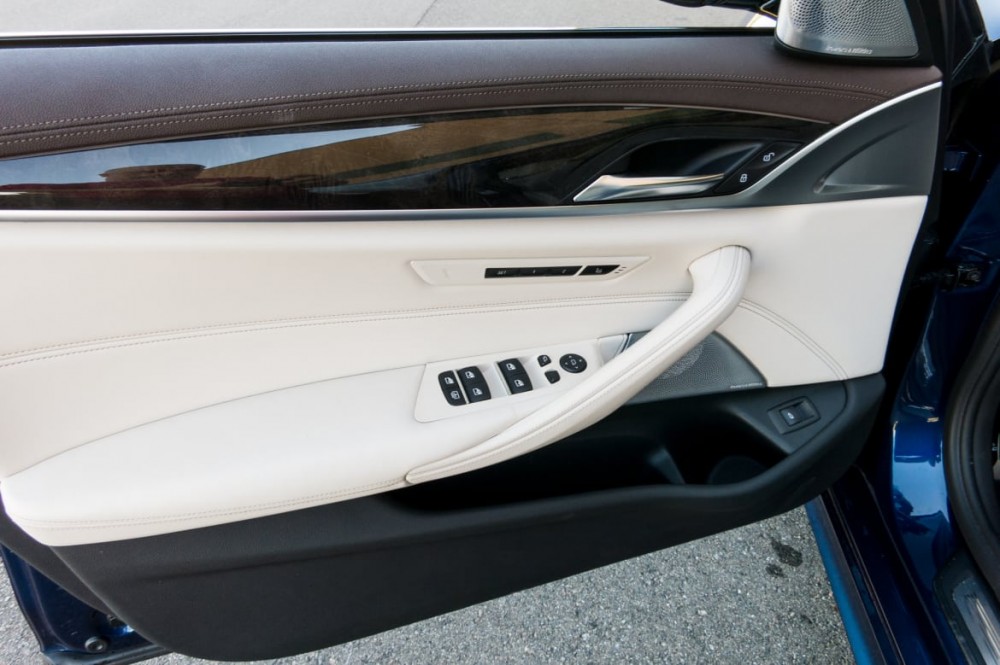
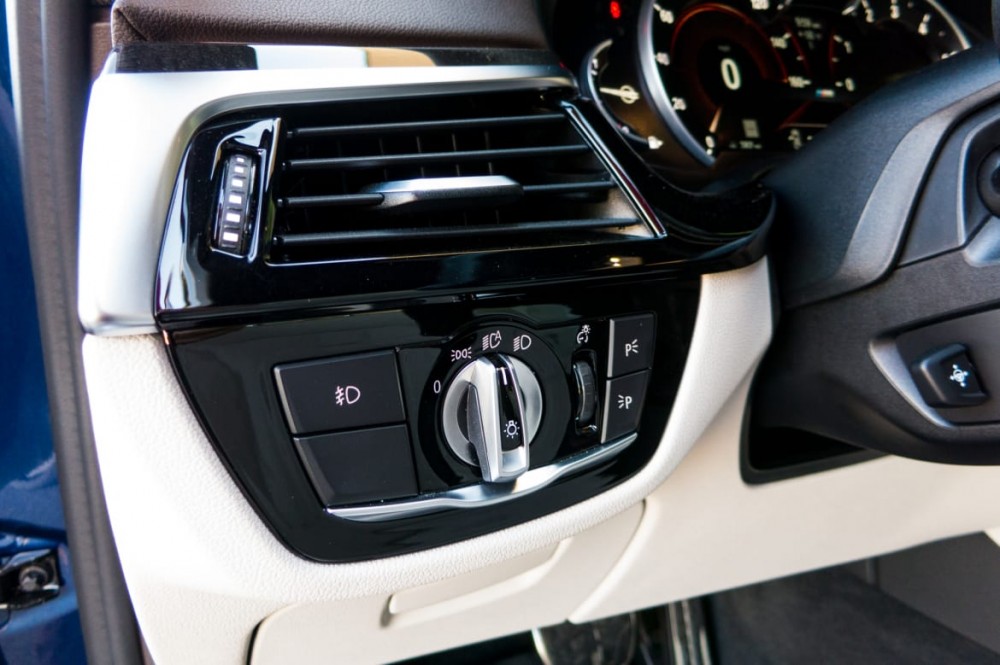
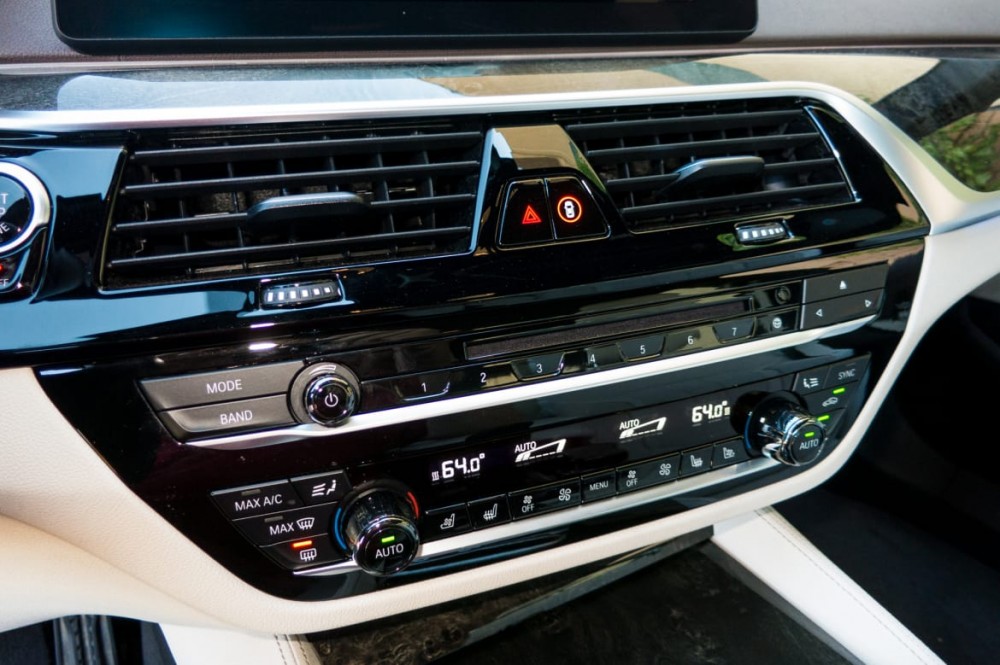
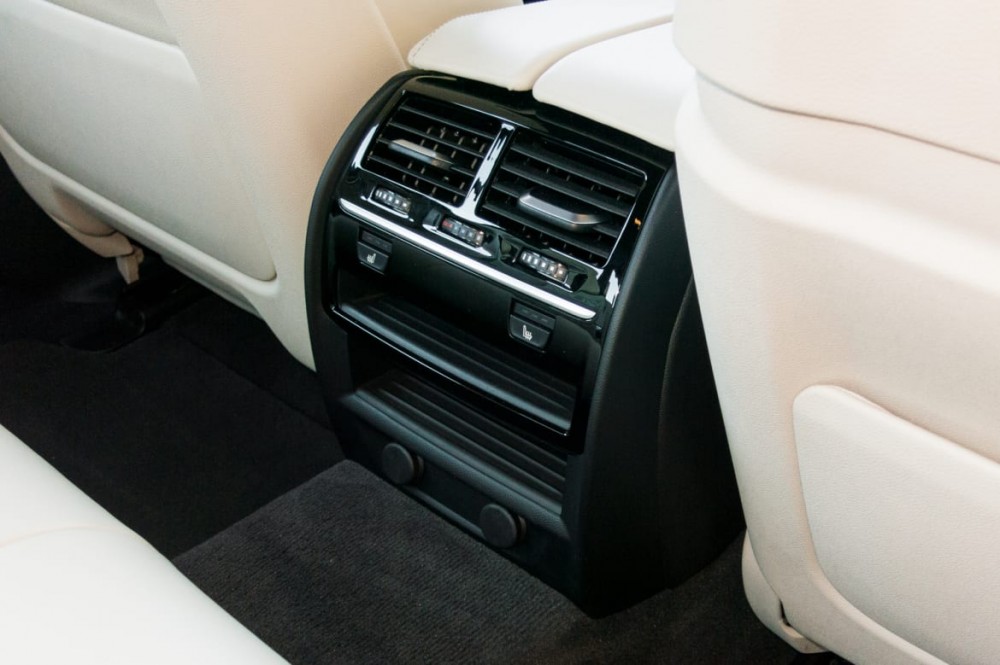
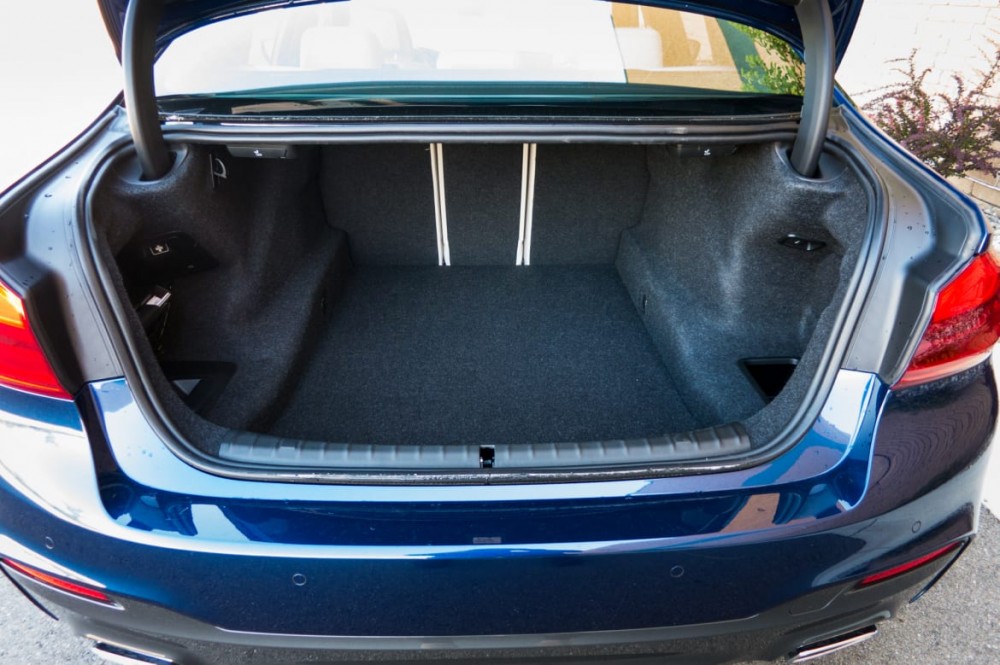
It Gets Really Expensive, Fast
The basic BMW 530i starts at $52,195 including destination fee, or $54,495 for the xDrive model. The bigger-engined 540i starts at $57,445. Prices climb quickly from there, however. My mostly loaded 530i xDrive included items like a cold weather package, two driving assistance packages, a lighting package, a luxury seating package and a premium package, plus stand-alone items like a power-close trunk, soft-close doors, ceramic controls and a premium Harman Kardon sound system; it rang in at $72,735. My 540i tester was even more expensive, adding things like a dynamic handling package, the M Sport package and a fancier Bowers & Wilkins audio system; it rang in at an eye-watering $82,610.
Competing vehicles are priced comparably. The latest Mercedes-Benz E-Class has a similar pricing scheme, starting at $53,075 for a four-cylinder E300 and quickly going north from there, with safety and electronic minder features all bundled in packages for quite a lot of money. Audi's A6 isn't quite so dear, starting at $48,550 and featuring front-wheel drive instead of the segment's more common rear-wheel drive. The Cadillac CTS is the better-handling alternative, and it's more economical, too, starting at $46,990 for the most-powerful four-cylinder turbo engine in the group. Compare all four here.








